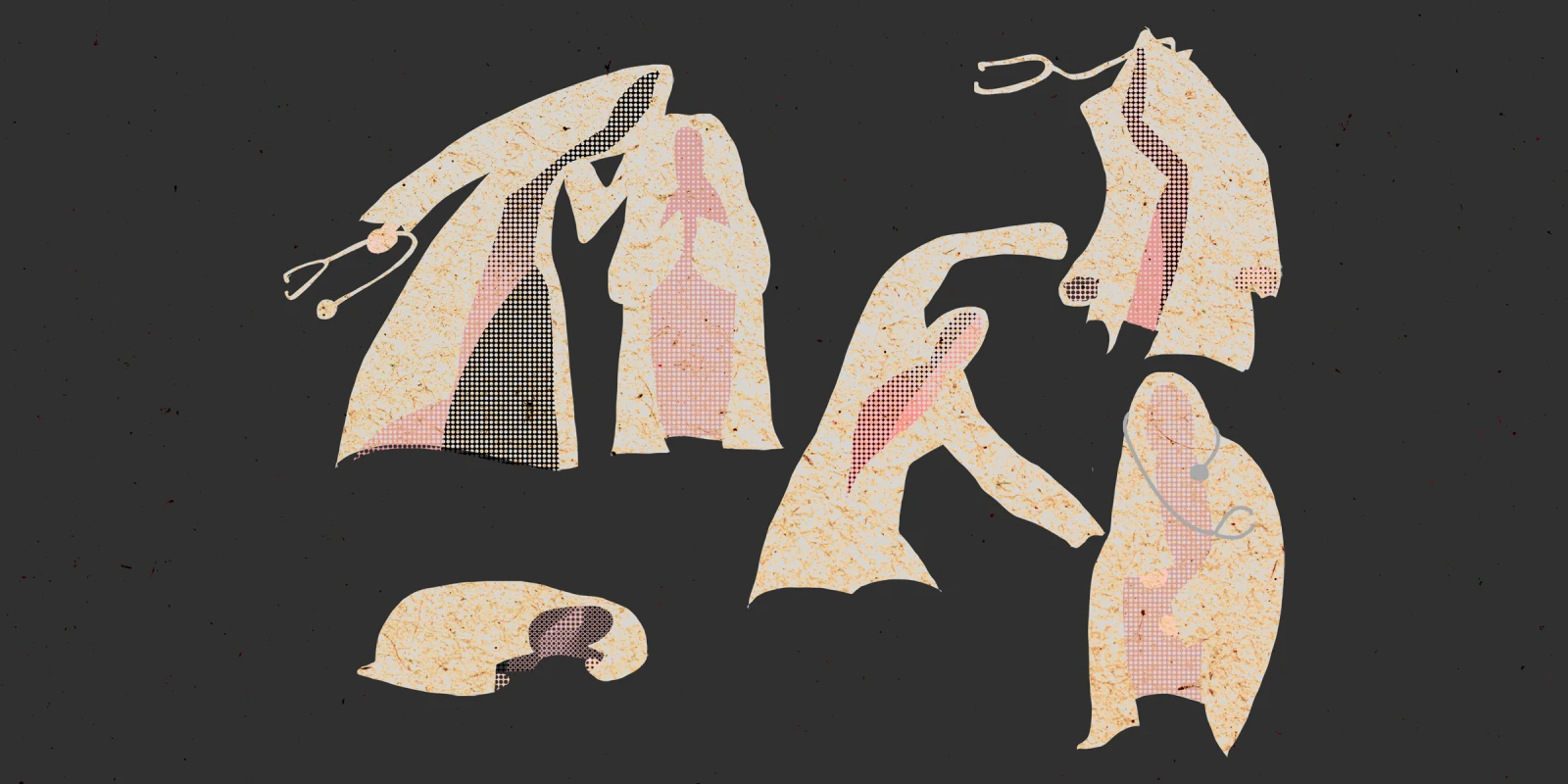My second rotation during intern year was on the family medicine inpatient service. I was excited to gain more experience on inpatient medicine and couldn’t wait to learn more. The rotation overall was progressing smoothly until the final week of the block, when a new patient I inherited from the overnight resident was noted to be very somnolent despite being on CPAP therapy. My senior resident was busy working with my co-intern on a new admission while I went over to evaluate the situation.
Upon first glance at the patient, panic instantly flooded my mind. Time seemed to slow down; the patient’s nurse was speaking to me, but her words became fuzzy. Soon, my attending also appeared and started to ask me questions, but I found myself unable to answer. Rapidly after that my senior resident appeared and as he was discussing with the attending, my knees trembled as I silently watched them work. What’s wrong with me? I wondered, Why can’t I do my job? Shame seeped in as the nurses started to interact with my senior resident and attending. Suddenly, it felt as if I was a medical student again, being reduced to just observing silently at the corner.
Once a plan was formulated, as the team returned to our workroom, I was silently contemplating on my mental shut down. Why couldn’t I help? What was wrong with me? It was embarrassing to be pushed to the side because I didn’t know what to do or say and was panicking in front of everyone. During the past few weeks, I thought I knew what I was doing, how to approach situations, and help with nurses’ queries. I never had this happen to me before, but now — what happened? These questions continued to plague my mind for the rest of the day.
Right before the evening sign out, a rapid response team (RRT) was suddenly called on another one of my patients. As we were rushing over, I tried to mentally chide myself to get it together and to focus. This was my chance to recover myself in front of my team! But yet again, upon arrival, my mind refused to work. I was filled with more shame as I watched once again, my senior and attending take over. My confidence continued to falter as I went home that evening in tears. Never did I feel so helpless since starting residency as I questioned my abilities and presence. How could I sign my title after my name when I couldn’t even remain calm during a difficult situation? When I couldn’t even speak and help during critical situations?
The remainder of my final week was unfortunately marred with daily RRTs from three patients under my care. During every RRT, I would grit my teeth and try to mentally wade through the thick fog that kept obscuring my thoughts. I am deeply grateful to my senior and attending for being able to calmly approach each situation and come up with a rational plan. I was frustrated with myself for constantly being unable to help beyond asking what the vitals were and then standing quietly while the team would take over.
My senior resident approached me privately one afternoon and remarked on how difficult the week was. My heart fluttered nervously, wondering whether he was going to comment further on my poor performance. However, his next words shocked me when he said, “You did nothing wrong. It’s OK not to know what to do in those situations, especially when you don’t have previous experience.”
Hearing his words instantly started to clear the mental fog within me. I completely forgot that I was still…well, an intern that just started. Never had I participated in a single RRT until that week. Additionally, I also realized that I was never alone during difficult situations; even beyond my team, there is always peripheral help and support. It’s not wrong to ever ask for help. My heart lightened and for once, the negative voice in my head was silenced.
I have previously (and continue to) struggle with my confidence and impostor syndrome. As a female physician, I have always felt more sensitive about how I appear toward my team and patients. I aspire to exude a calm and professional manner, but it had irked me how I broke down publicly. I thought I lost everyone’s respect in those moments. But I also realized that perhaps I am the biggest and worst critic.
Self-criticism can be debilitating, particularly in imposter syndrome. In medicine, this appears more profound regardless of what training level and experience one brings. It feels like mistakes are magnified in the moment and suddenly you are doubting yourself and your abilities. Mistakes will happen, sometimes beyond our control, sometimes the result of incorrect decisions, or sometimes from missed factors. Everyone enters health care with compassionate intentions, but we often forget how to be compassionate to ourselves. Forgiving ourselves and recognizing our limitations is important. However, it’s important to keep remembering our accomplishments and achievements. Today’s mistake can be an impetus to self-growth and improvement.
Residency is continuing along with further learning opportunities. Since then, many more RRTs and code blues have happened, and there were numerous moments where I didn’t know what to do. But, during this year, I have continued to work on being less critical of myself and to not feel inept when others step in to help. Residency will continue to have its ups and downs, but I always remind myself of this moment.
Who comforted you when you needed it? Shout them out in the comments.
Dr. Rashmi Saincher is a family medicine resident in North Carolina interested in rural care. She enjoys reading, writing, and hiking in her spare time.
Illustration by Jennifer Bogartz






